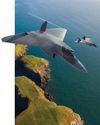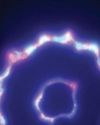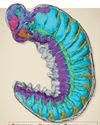
Turns out, the type of particle that could enable such a strange circumstance already has a name the tachyon-and its existence wouldn't just break our understanding of physics, but our grip on reality as we know it.
The Rules for Traveling Faster Than Light // As objects move faster, they gain more energy. But relativity tells us that mass and energy are the same thing (as in E=mc²). An object approaching the speed of light picks up an infinite amount of mass, which would require an infinite amount of energy to push therefore, all massive objects are forever restricted to speeds below that of light.
Yet relativity tells us that if a special particle were to appear on the scene, already traveling faster than light, then it would be forced to move at light speed forever.
The hypothetical tachyon particle could beat light speed. The problem: Its existence would rewrite a fundamental aspect of our physical universe.
Tachyons Don't Follow Cause-and-Effect Logic // The issue here is causality-the principle that everything has a cause, that every cause leads to an effect, and that every effect comes from a cause. For example, if I want to put coffee in my mug (an effect), I have to pour the coffee from the pot into the mug (a cause).
This story is from the {{IssueName}} edition of {{MagazineName}}.
Start your 7-day Magzter GOLD free trial to access thousands of curated premium stories, and 9,000+ magazines and newspapers.
Already a subscriber ? Sign In
This story is from the {{IssueName}} edition of {{MagazineName}}.
Start your 7-day Magzter GOLD free trial to access thousands of curated premium stories, and 9,000+ magazines and newspapers.
Already a subscriber? Sign In

ONE OF THE 'GREATEST THREATS' TO THE PACIFIC NORTHWEST ISN'T WHAT YOU THINK.
EXPERTS ARE PREPARING THE REGION AGAINST THE THREAT OF DANGEROUS VOLCANIC MUDFLOWS, KNOWN AS LAHARS, WHICH COULD INUNDATE THE COMMUNITIES SURROUNDING MT. RAINIER IN AS LITTLE AS 30 MINUTES.

THE WORLD'S TOUGHEST ROW
They rowed 3,000 miles across the Atlantic, battling unpredictable weather, chaotic seas, and finicky equipment. But what they discovered gave them profound new insights into the power of the ocean.

HOW TO DIY OFF-GRID SOLAR
SPEND THE TIME UP FRONT AND PLAN IT CAREFULLY TO AVOID DISAPPOINTMENT

Are We on the Verge of an ARMS RACE in SPACE?
RUMORS OF A RUSSIAN SPACE NUKE, ALONG WITH OTHER SATELLITE-TARGETING WEAPONS, HAVE MADE GEOPOLITICAL TENSIONS EXTEND INTO ORBIT.

Fresh Fingerprints on an Ancient Statue
A CLAY FIGURINE HAS SPENT MILLENNIA incomplete, waiting at the bottom of a lake for its long-dead craftsman to finish the Iron Age-era statuette.

Quantum Entanglement in Our Brains
IT HAS LONG BEEN ARGUED THAT THE human brain is similar to a computer. But in reality, that's selling the brain pretty short.

The Tools of Copernicus
WAY BACK IN 1508, WITH ONLY LIMited tools at his disposal, Nicolaus Copernicus developed a celestial model of a heliocentric planetary system, which he described in hist landmark work De revolutionibus orbium coelestium. It was a complete overhaul of our conception of the universe-one that, unfortunately, earned him the ire of the Catholic church for decades after his death-and forever changed the way we look at the stars.

Building a Sixth-Generation Bomber Raptor
THE GLOBAL COMBAT AIR Programme (GCAP)-a project by the U.K., Italy, and Japan to develop a sixth-generation stealth fighter-has been busy at the drawing board reshaping its vision of the future of air warfare. And judging by the new concept model unveiled at this year's Farnborough air show, that future has big triangular wings.

The Electroweak Force of the Early Universe
TODAY, THE UNIVERSE AS WE KNOW IT IS governed by four fundamental forces: the strong nuclear force, the weak nuclear force, electromagnetism, and gravity.

This Ancient Fossil With a Brain and Guts
WE KNOW WHAT FOSSILS LOOK like. For example, typical dinosaur fossils are bones turned to stone and preserved from the passage of time, located, if we're particularly lucky, in large collections that can be reassembled to represent the beast they used to prop up in their entirety.